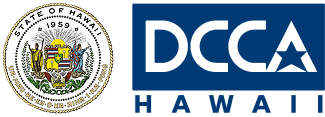Mailing Address
- Division of Financial Institutions Department of Commerce and Consumer Affairs P.O. Box 2054 Honolulu, HI 96805
Office Location
- Division of Financial Institutions Department of Commerce and Consumer Affairs King Kalakaua Building 335 Merchant Street, Rm. 221 Honolulu, HI 96813
Phone/Fax Numbers
Email Addresses
General questions: [email protected]
Mortgage loan origination questions: [email protected]

